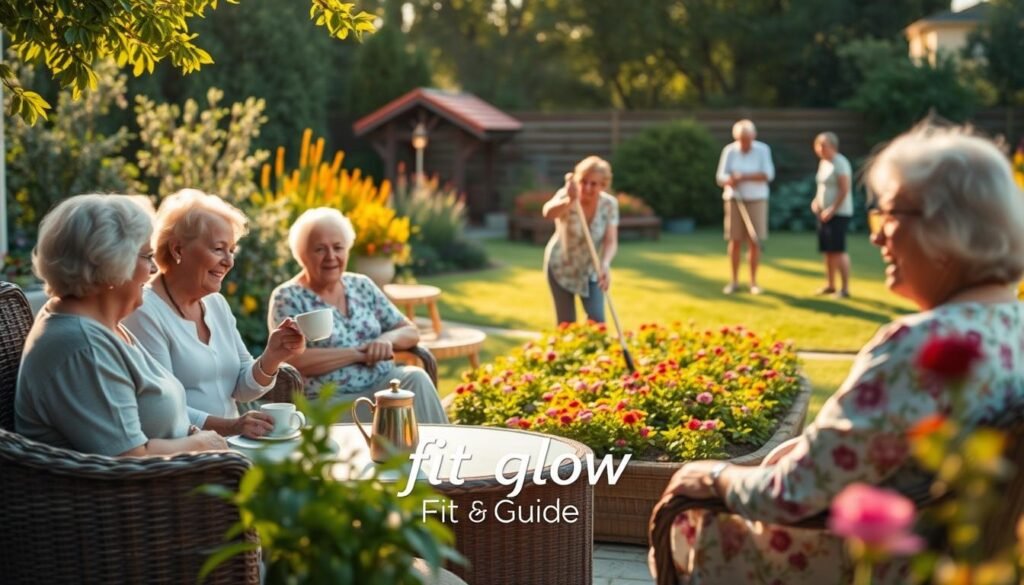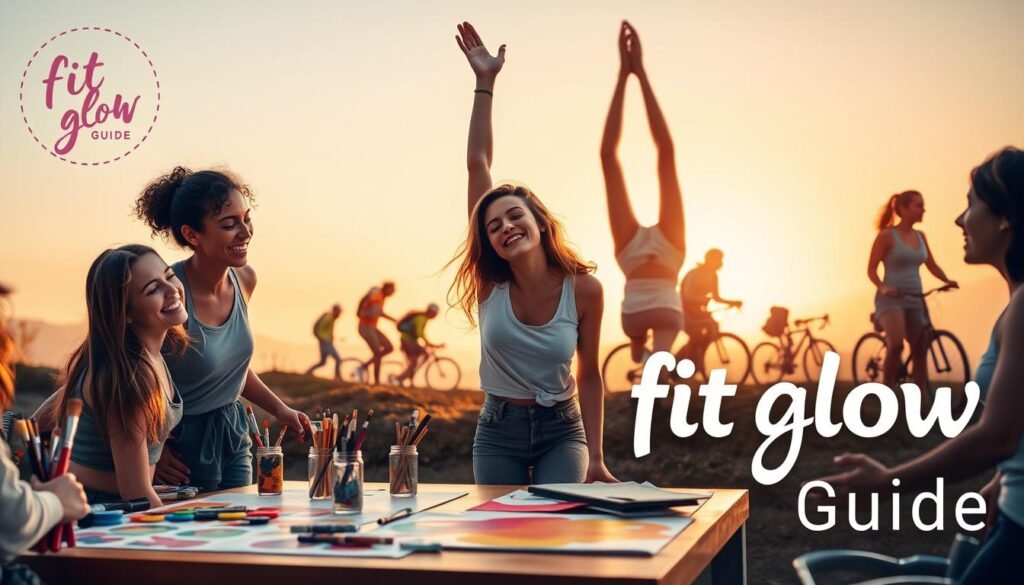Retirement is a significant life transition where women often find themselves with an abundance of free time to explore new interests and rediscover old passions. Many retirees struggle to maintain their identity and sense of purpose beyond their career.
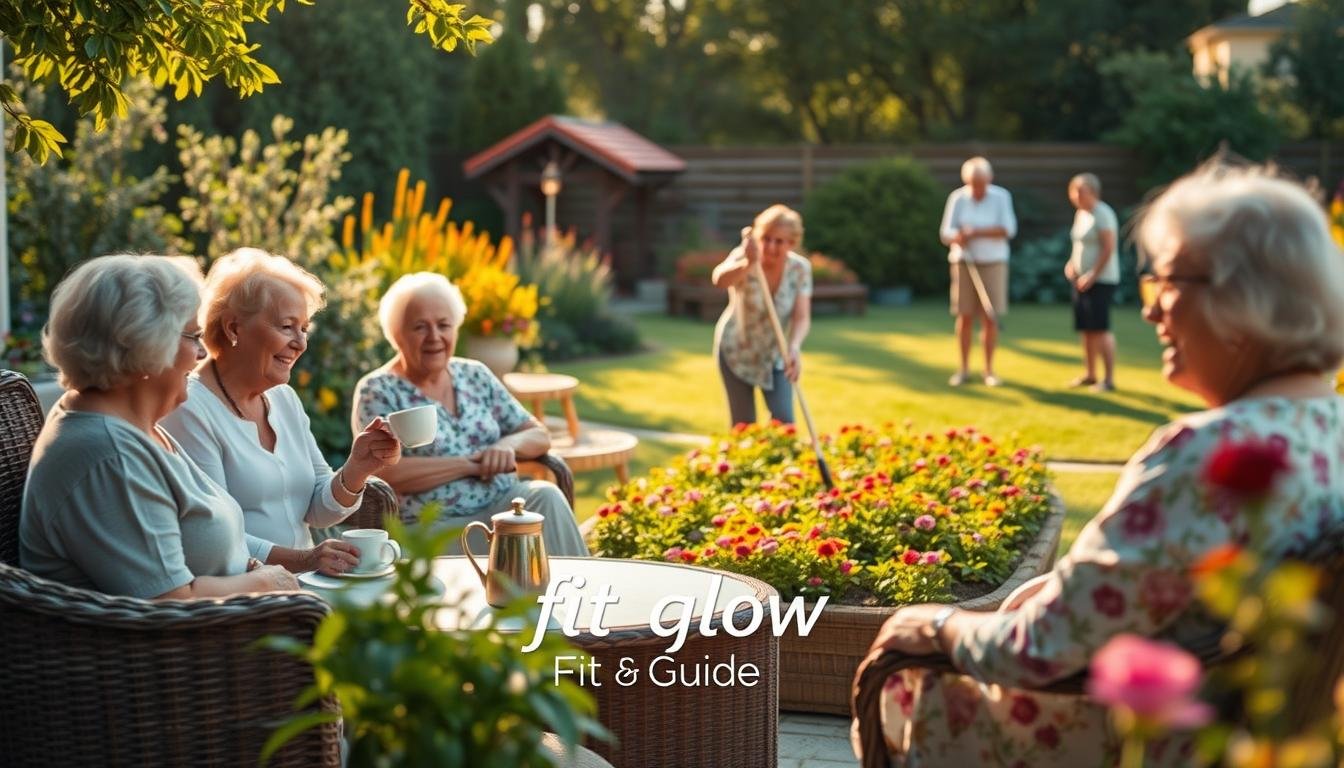
Engaging in fulfilling hobbies is essential for maintaining joy and a sense of identity. The Fit Glow Guide philosophy emphasizes nurturing body, mind, and spirit, aligning perfectly with finding activities that enhance life during this stage.
By exploring various hobby categories, retired women can discover new passions and interests that bring fulfillment and excitement to their post-career life.
Key Takeaways
- Retirement represents a significant life transition for women.
- Engaging in hobbies is crucial for maintaining purpose and joy.
- The right hobbies can enhance quality of life and create new social connections.
- Selecting hobbies that match individual interests and capabilities is essential.
- Practical guidance is available to help retired women discover fulfilling activities.
Why Hobbies Are Essential in Retirement
Retirement marks a significant life transition, and hobbies play a crucial role in making this phase fulfilling. As people retire, they often face a void in their daily structure and purpose. Engaging in hobbies can effectively fill this void, providing meaningful activities that stimulate the brain and prevent cognitive decline.
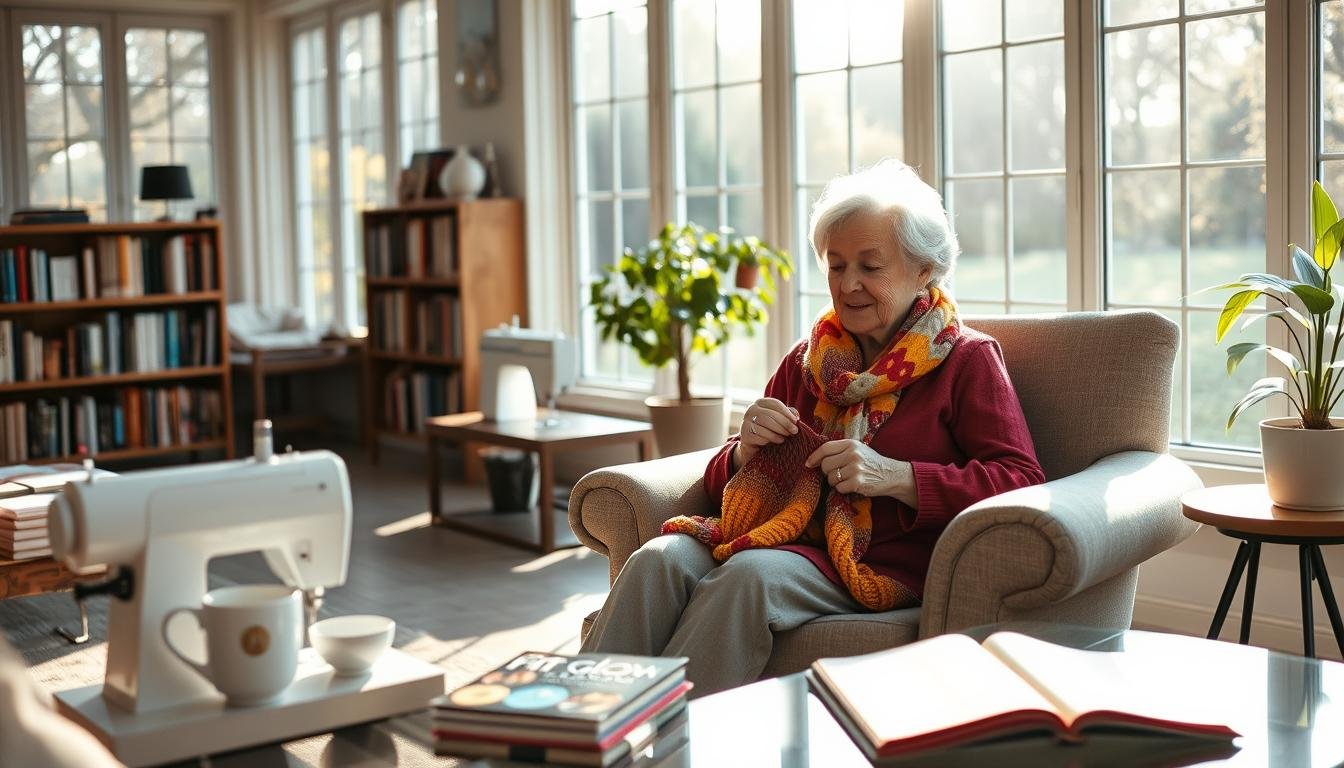
Mental Health Benefits
Engaging in enjoyable hobbies has been shown to reduce stress, anxiety, and depression that can accompany the major life transition of retirement. By participating in activities they love, retired women can maintain a positive mental health outlook. As one expert notes, “Hobbies shape our personalities, energize, inspire, and sometimes connect us with other like-minded people.”
Physical Health Advantages
Hobbies that involve physical activity help maintain mobility, strength, and cardiovascular health. Regular engagement in such hobbies contributes to better sleep patterns, improved immune function, and reduced risk of chronic diseases common in older adults, thereby enhancing overall health and quality of life.
Social Connection Opportunities
Group hobbies and classes create natural opportunities for social interaction, helping retired women build new friendships. Maintaining social connections through shared hobbies provides emotional support, reduces isolation, and creates a sense of belonging in the community, making retirement a more enjoyable and fulfilling way of life. By structuring their time around hobbies, retired women can create routines that give shape and meaning to their retirement days.
How to Choose the Right Hobby After Retirement
Finding the ideal hobby after retirement involves considering several key factors that can significantly impact your life and overall satisfaction.
Retirement offers a unique opportunity to explore new interests and rekindle old passions, making it essential to assess what truly resonates with you.
Assessing Your Interests and Passions
To discover the perfect hobby, start by reflecting on activities that have always fascinated you but never fit into your busy schedule. Consider what you’ve always wanted to try or revisit, and make a list of potential hobbies that align with your authentic interests.
This process can help you identify exciting possibilities and narrow down your options to those that bring you joy and fulfillment.
Considering Physical Capabilities
It’s crucial to honestly assess your physical capabilities when selecting a hobby to ensure it’s sustainable and enjoyable. Consider how your chosen activity might be adapted to accommodate any physical limitations, allowing you to maintain engagement without risking injury.
By doing so, you can choose hobbies that provide fulfillment and exercise different aspects of your well-being.
Budget and Resource Requirements
Budget considerations are vital for retired women living on fixed incomes. While some hobbies may require significant investment, many rewarding options require minimal financial outlay.
Evaluate the time, space, and equipment needed for your chosen hobby to ensure it fits realistically into your lifestyle, allowing you to make the most of your retirement experience and develop new skills.
Creative Hobbies for Retired Women
For retired women, embracing creative hobbies can be a powerful way to stay engaged and inspired. Engaging in creative activities not only fosters creativity but also provides a sense of accomplishment and joy. Whether you’re looking to explore a new hobby or revisit an old passion, retirement is the perfect time to discover new talents and interests.
Creative hobbies offer a wide range of benefits, from providing outlets for self-expression to unlocking dormant talents. Many retired women find that engaging in creative activities helps them stay mentally active and socially connected.
Arts and Crafts
Arts and crafts encompass a variety of activities such as painting, drawing, knitting, quilting, and pottery. These hobbies offer tactile satisfaction and visible results, making them highly rewarding. For those interested in exploring arts and crafts, there are numerous kits available designed specifically for seniors.
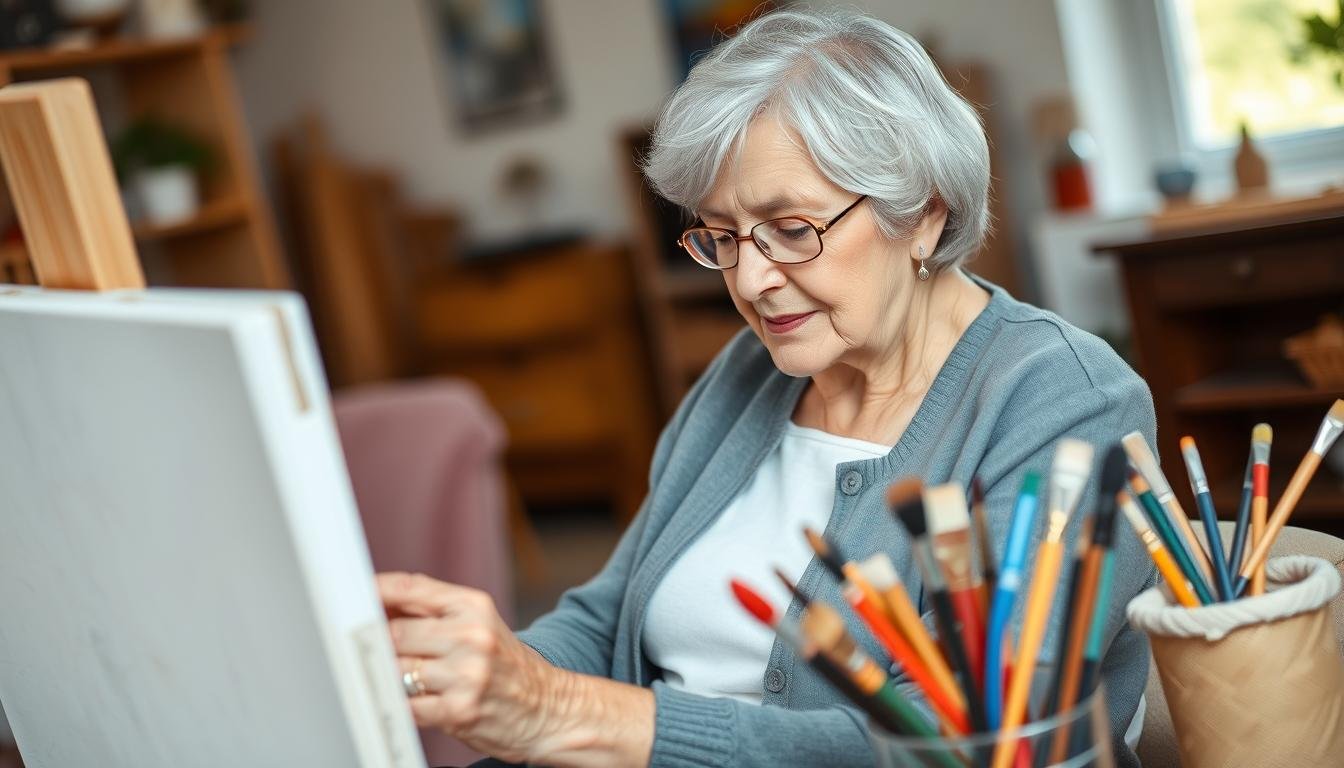
Writing and Journaling
Writing and journaling are excellent ways to reflect on life experiences and preserve memories. Keeping a diary or writing short stories can be therapeutic and fulfilling. For seniors, there are journals designed with larger print and comfortable formats.

Photography
Photography is another creative outlet that allows retired women to capture and preserve memories. With the advancement in smartphone technology, photography has become more accessible. For those looking to invest in a dedicated camera, there are several models suitable for beginners.

Engaging in these creative hobbies not only enhances skills and fosters creativity but also provides a sense of purpose and fulfillment. By exploring different creative activities, retired women can find new passions and interests that bring joy and satisfaction to their lives.
Best Hobbies for Retired Women Who Love Nature
For retired women who cherish the outdoors, nature-based hobbies offer a wealth of opportunities to stay active, engaged, and connected to the environment. These hobbies not only promote physical health but also contribute to mental well-being.
Gardening and Plant Care
Gardening is a calming adventure that allows you to plant seeds, watch them grow into colorful flowers and green plants, and feel the soil in your hands. It’s a peaceful routine that connects you to the earth. Container gardening and raised beds make this hobby accessible even for those with limited space or mobility challenges.
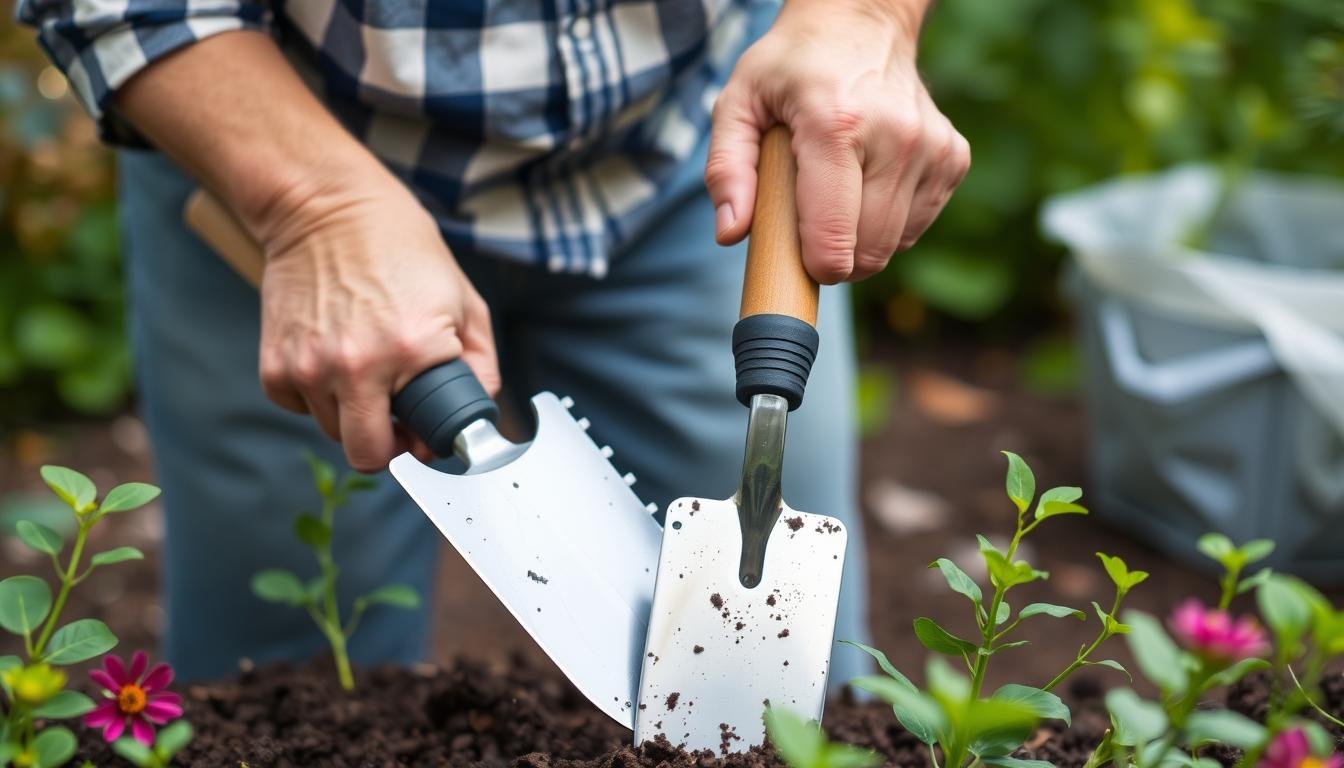
Bird Watching
Bird watching is a fascinating yet simple exploration of nature. It develops observational skills and patience while providing endless opportunities for learning about local ecosystems and migration patterns. This hobby can be enjoyed from a backyard feeder or through organized outings to wildlife preserves and natural areas.

Outdoor Walking and Hiking
Walking and hiking in natural settings combine cardiovascular exercise with the mental health benefits of being in nature, often called “green exercise.” Nature walks can be tailored to any fitness level, from gentle strolls in local parks to more challenging hikes in varied terrain. Bring along a camera to practice your photography skills or show off what you see!
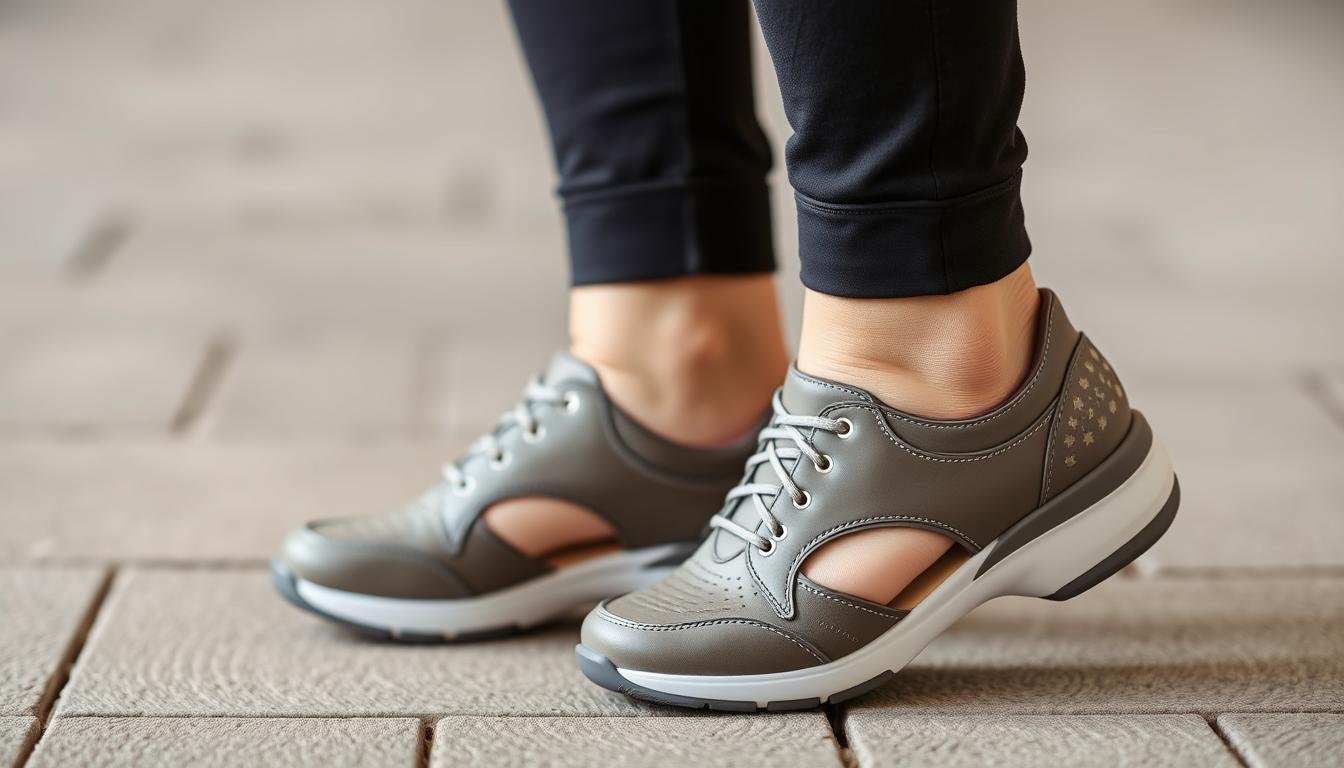
Nature-based hobbies like gardening, bird watching, and walking offer retired women a meaningful connection to the natural world while providing gentle physical activity and sensory stimulation. These activities often lead to other complementary hobbies, keeping engagement fresh and interesting throughout the year.
Intellectual and Learning Hobbies
Intellectual hobbies offer a fantastic way for retired women to stay mentally active, learn new skills, and connect with like-minded individuals. Engaging in these activities can be incredibly rewarding, providing a sense of accomplishment and personal growth.
Reading and Book Clubs
Reading is a favorite pastime for people of all ages, and it remains one of the most accessible and rewarding intellectual pursuits. With the help of free library memberships and unlimited ebook subscriptions, reading can be incredibly affordable. Joining or creating a book club adds a social dimension, creating regular opportunities for stimulating discussion and connection with fellow book lovers.

Learning New Languages
Learning a new language in retirement provides cognitive benefits by creating new neural pathways while opening doors to new cultures and travel experiences. Modern language learning apps and online courses make this hobby more accessible than ever, even for those who struggled with language learning in school.

Genealogy Research
Genealogy is a fascinating yet simple exploration of family history. Whether delving into records, talking to relatives, or using online tools, this activity unveils the stories of your ancestors. Every found link and detail is like a puzzle piece, weaving together a meaningful story of your family’s past and heritage.

These intellectual hobbies can be pursued individually or in community settings like libraries, senior centers, or online forums, providing flexibility in how they’re enjoyed. By engaging in these activities, retired women can keep their minds sharp, learn new skills, and potentially help prevent cognitive decline associated with aging.
Physical and Wellness Hobbies
As women enter retirement, adopting physical and wellness hobbies can significantly enhance their quality of life. Engaging in regular physical activity not only improves physical health but also boosts mental well-being. It’s essential to choose hobbies that are enjoyable and sustainable in the long term.
Mindful Movement: Yoga and Meditation
Yoga offers a perfect combination of gentle movement, flexibility training, and mindfulness practice that can be adapted for any fitness level or physical limitation. Regular yoga practice has been shown to improve balance, reduce fall risk, and alleviate common issues like back pain and joint stiffness in older adults. Meditation, either as part of yoga or as a standalone practice, provides powerful stress reduction benefits and has been linked to improved cognitive function.
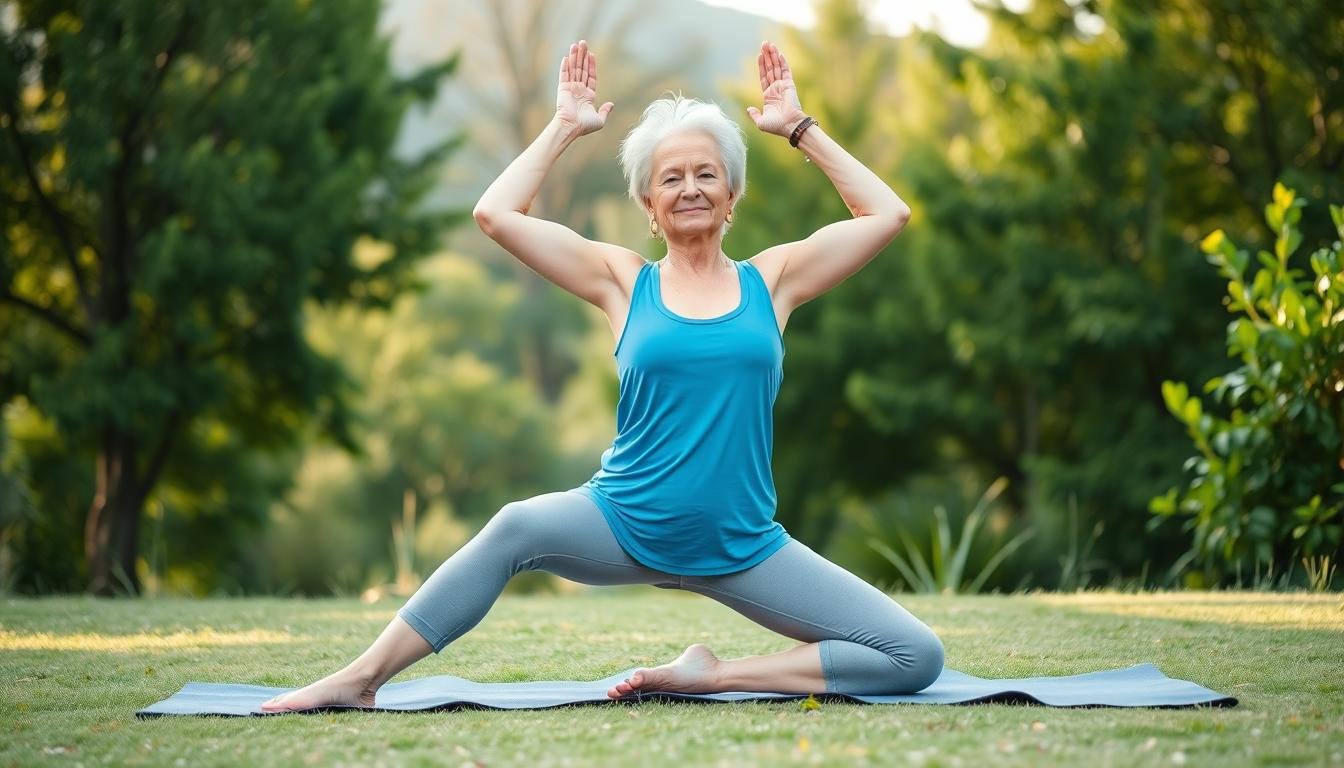
The Joy of Dancing
Dancing combines physical exercise with social interaction and the joy of music, making it one of the most complete wellness activities available. Various dance styles, from ballroom to line dancing, offer options for different preferences and partner situations. Whether moving to a beat or expressing yourself through graceful steps, dancing becomes a delightful fusion of rhythm, self-expression, and fitness.
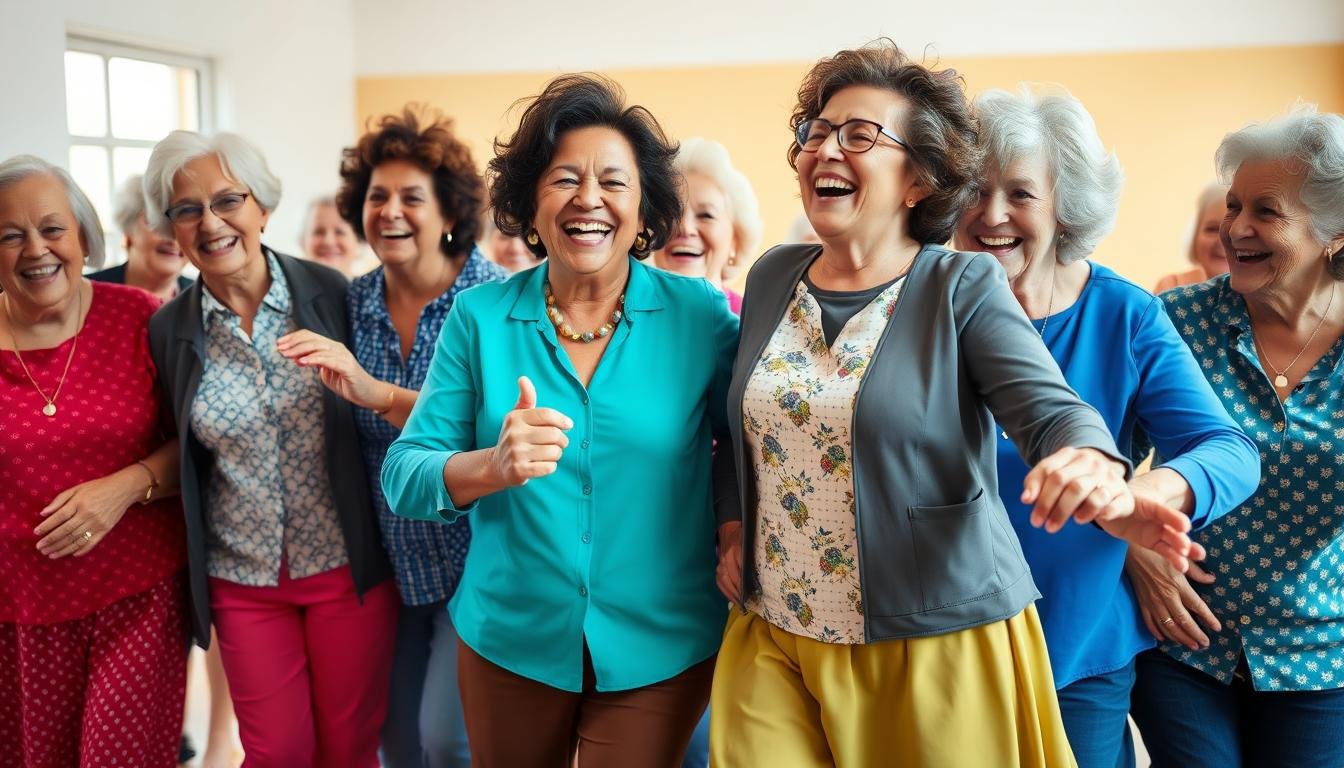
Golf and Low-Impact Sports
Golf and other low-impact sports provide cardiovascular benefits and strength training without the joint stress of high-impact activities. These sports often come with built-in social communities and can be enjoyed well into advanced age with appropriate modifications. The mental focus required for activities like golf also provides cognitive benefits alongside the physical advantages.
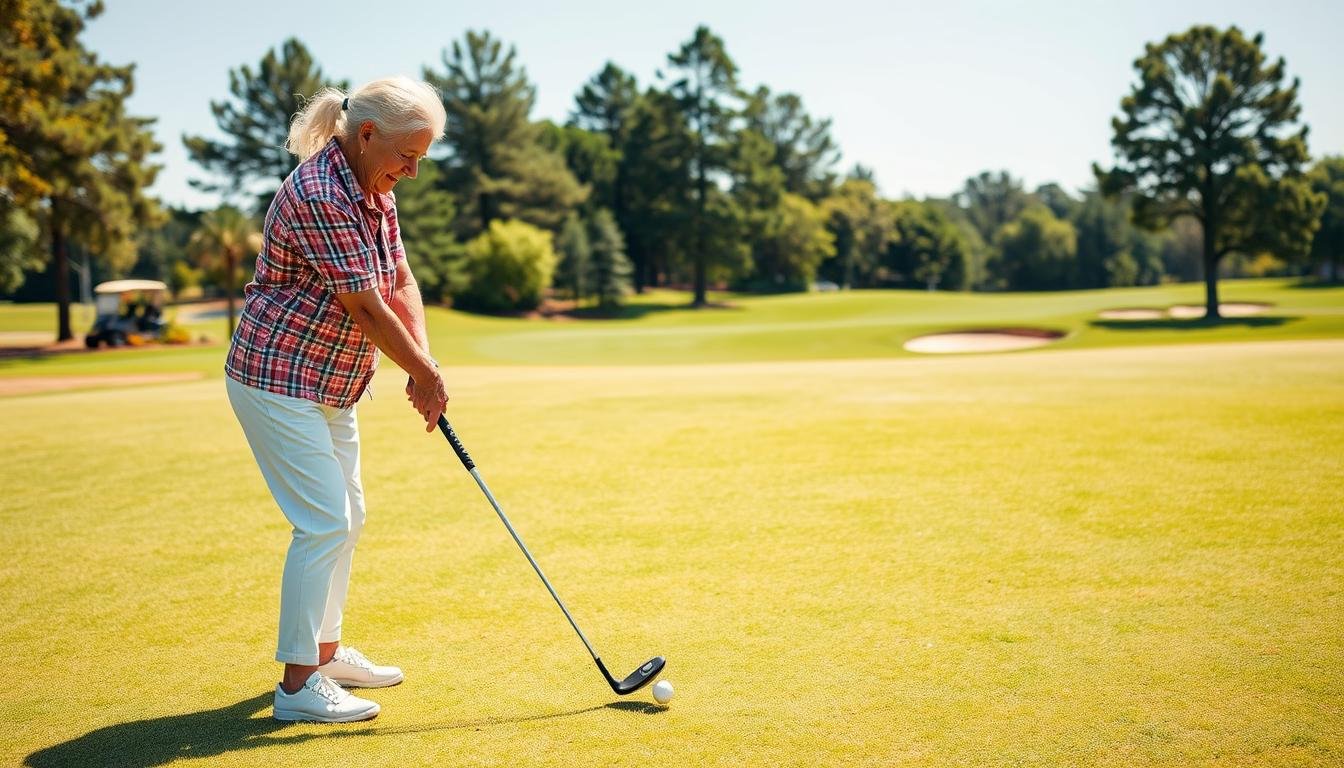
Engaging in physical and wellness hobbies is crucial for maintaining mobility, strength, and overall health during retirement years. By choosing activities that are enjoyable and tailored to individual capabilities, retired women can stay active, socialize, and maintain their mental health.
Social Hobbies That Build Community
Social hobbies offer retired women a fantastic opportunity to connect with others and build a stronger community. Engaging in these activities can help address one of the biggest challenges of retirement—maintaining meaningful human connections after leaving the workplace community.
Volunteering Opportunities
Volunteering is a rewarding way for retired women to contribute their skills and experience while making new connections. Many organizations seek out retired volunteers who can offer consistent daytime availability and professional expertise.
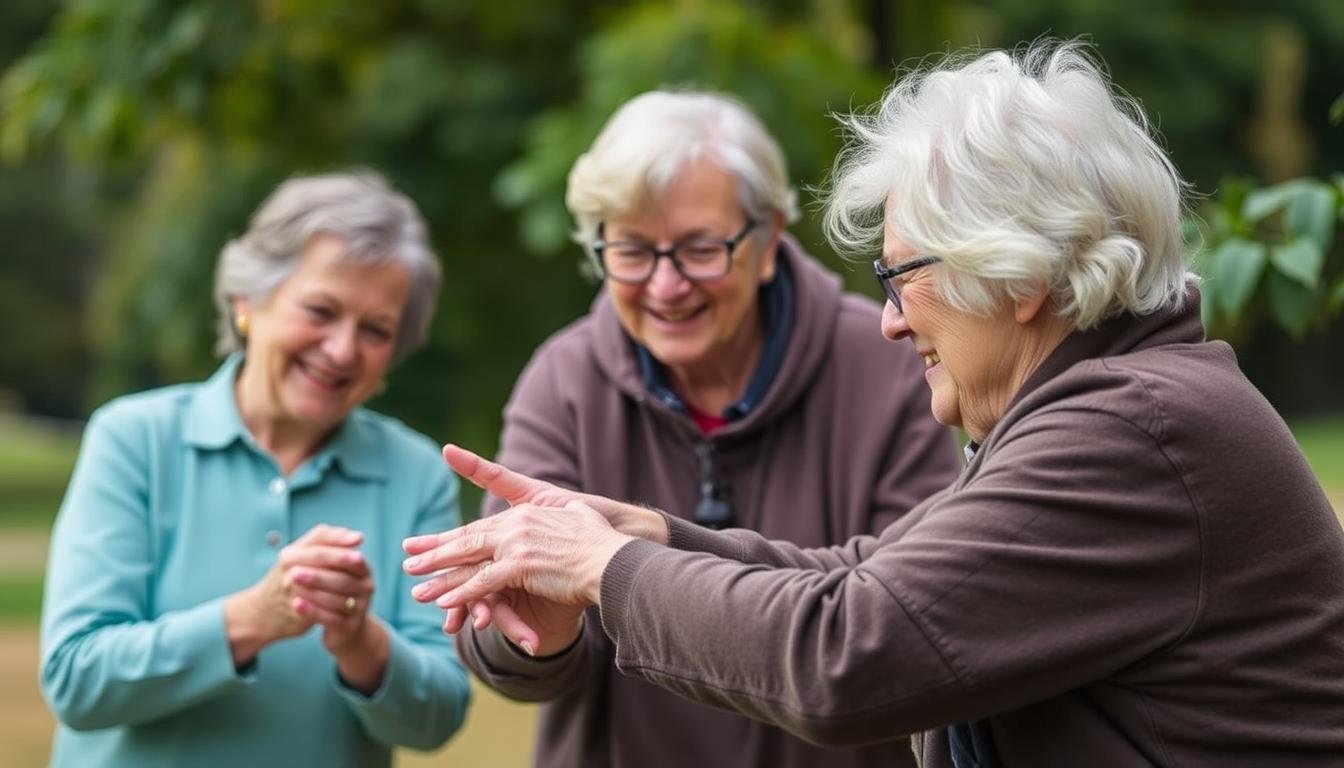
Group Activities and Clubs
Group activities and clubs centered around shared interests provide regular social interaction in a structured setting. These groups often become important support networks that extend beyond the hobby itself into genuine friendships.
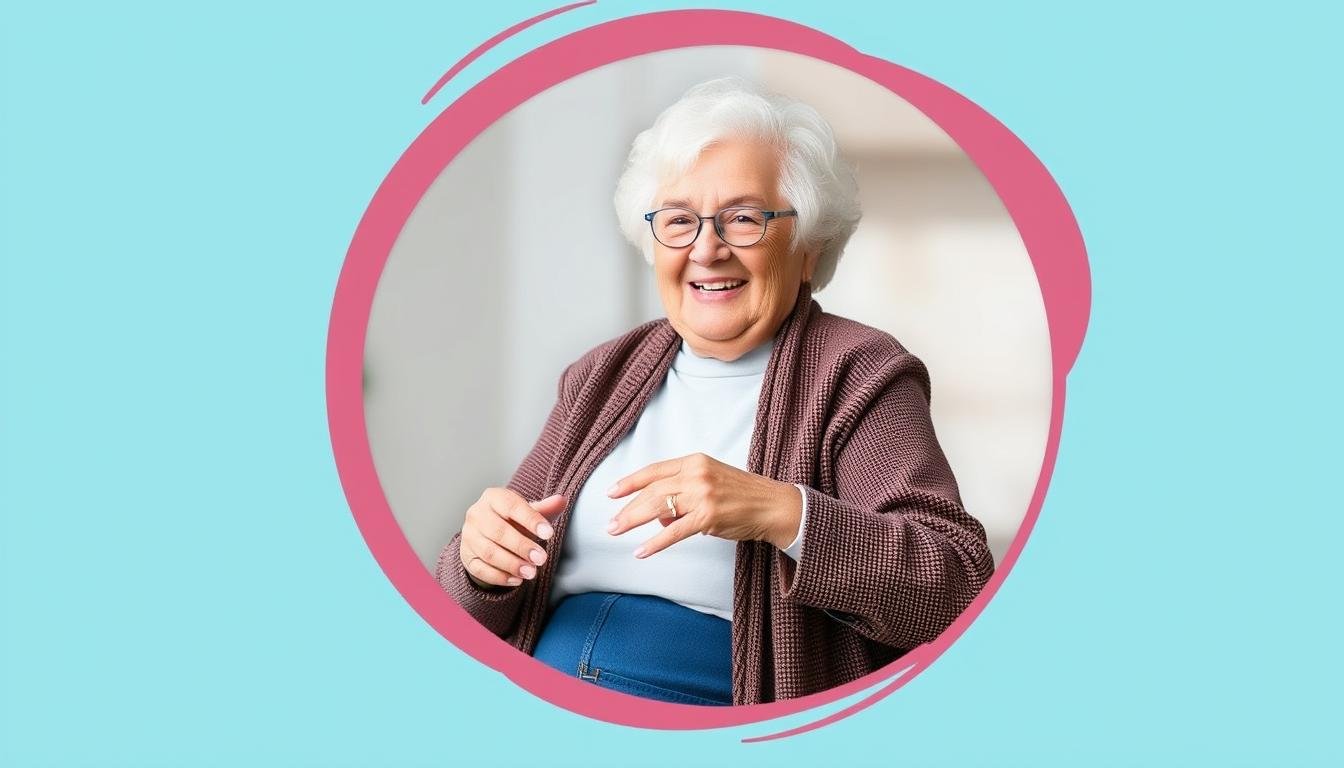
Travel Groups and Excursions
Travel groups designed for seniors offer the adventure of exploration with the security and companionship of traveling with peers. From day trips to international tours, travel experiences can be tailored to different physical capabilities and comfort levels.
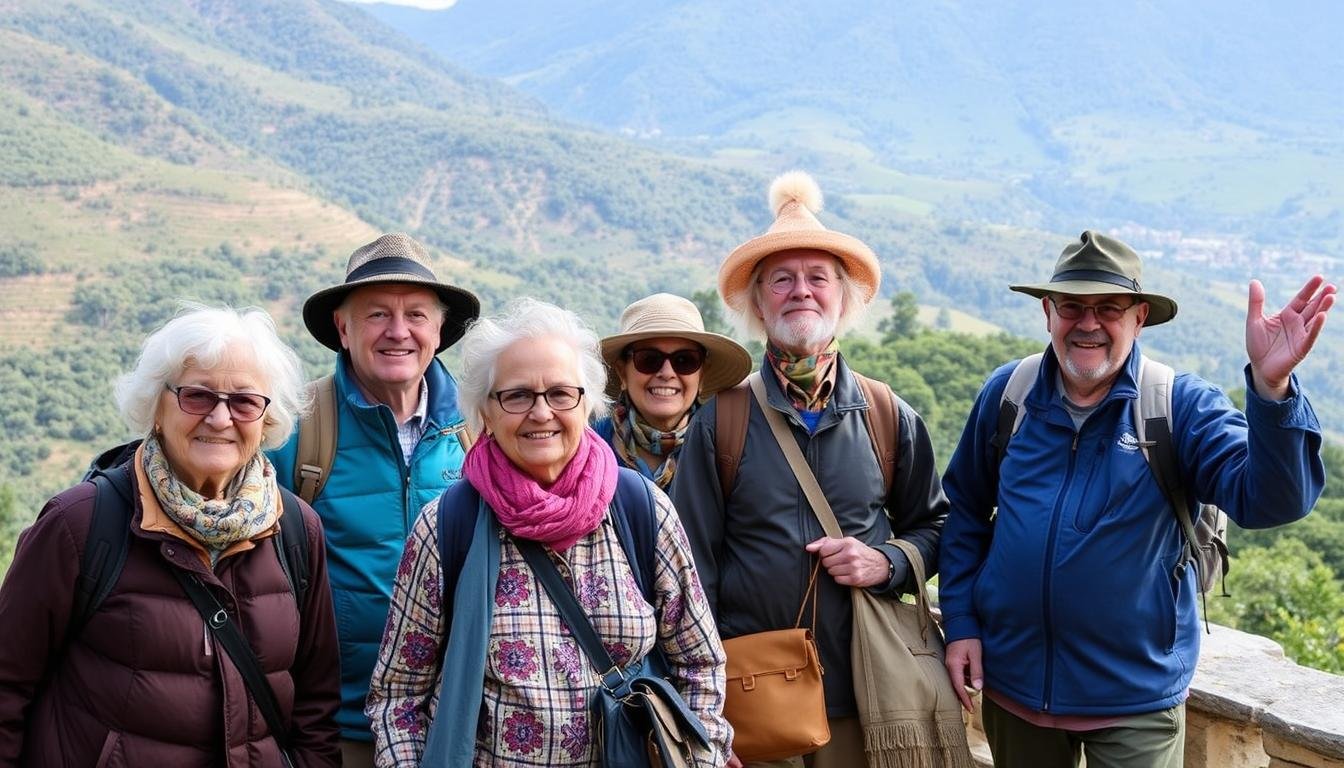
By engaging in these social hobbies, retired women can build a stronger sense of community, foster new friendships, and create lasting memories. Many community centers, libraries, and senior organizations offer free or low-cost social hobby groups specifically designed for older adults.
Conclusion: Embracing a Fulfilling Retirement Through Hobbies
Embracing retirement with the right hobbies can be a transformative experience, enriching life in unexpected ways. Retirement represents a unique opportunity for women to reinvent themselves through meaningful activities that align with their authentic interests and values.
The diverse list of hobbies presented in this article offers starting points for exploration. Many retired women find that a combination of different types of activities—creative, physical, intellectual, and social—creates the most balanced and satisfying lifestyle. For instance, engaging in arts and crafts, gardening, or yoga can not only bring joy but also contribute to improved mental health and overall well-being.
The time invested in developing new skills and interests during retirement pays dividends in improved health outcomes, cognitive function, and overall life satisfaction. Moreover, hobbies that evolve and present ongoing challenges help prevent stagnation, keeping the mind active and engaged. With the aid of technology, many hobbies have become more accessible to seniors through online communities and instructional resources.
Ultimately, the goal is to find activities that bring genuine pleasure and meaning to each day of retirement. By embracing new hobbies, women can discover new directions, form meaningful relationships, and experience a renewed sense of purpose. This holistic approach to aging well encourages retired women to view hobbies not as mere pastimes but as essential components of a fulfilling life.




